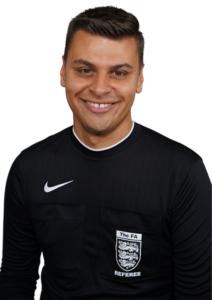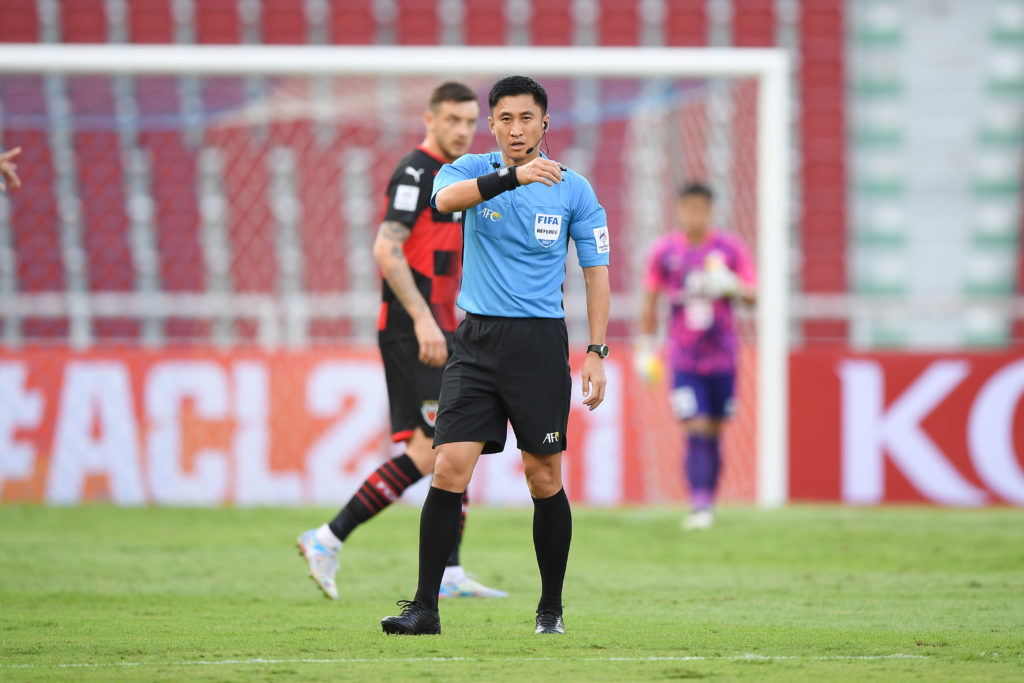Have you ever wondered why you might fall short of your goals? Some referees are consistently wide of the mark and fail to achieve their officiating ambitions. The reason is that those ambitions are merely hopes, not goals.
Think of this scenario; you want to gain a promotion to the next level. You know you have to break into the top of your band of referees but are unsure of the standard expected when it comes to marks.
You are not even sure of the best gameplan for yourself. With no clarity, you have minimal direction to inform your training. Do you think the odds would be stacked in your favour to earn a promotion?
Hope Lacks Clarity
A goal is clearly defined. Goals provide a very specific target. For example, an official can set a goal to increase his decision making accuracy from 85% to 90% over the course of the season.
The goal identifies the starting point and the desired destination. The goal can be measured and has a completion date (the end of the season). Hope lacks planning.
A goal has a detailed action plan. A goal plan is a set of instructions or steps that, when acted upon, move you in the direction of your goal. The plan could include making 10 extra sprints when training, 3 x per week, and working with your referee coach on decision making technique. Hope lacks effort and relies on luck.
Goals require action every day, not just any action, but a focused effort in line with your goal plan. Goal plans are flexible and can change due to their lack of effectiveness or changing circumstances.
Goals Require An Assessment Of Progress And Adjustments When Necessary
In our example, an injury can interrupt a referee’s progress. Still, officials could adjust their plan by replacing practice with rehab and adding visualisation sessions to improve performance.
This is an excellent example of practical goal setting and flexibility:
Steele Johnson is a six-time individual and eight-time synchronised 10 metre United States champion diver at the senior level. At the Olympic Games Rio 2016, Johnson earned a silver medal at his Olympic debut in 10-meter synchro with partner David Boudia.
Johnson continues to pursue his goals with focus, effort, and flexibility:
“Just because my goals did not change doesn’t mean that my process of achieving those goals will be the same. 2020 brought a lot of adjustment that I believe helped me learn how to maintain focus in the midst of adversity. It is important to have a plan of action, but it is even more important to hold that plan with an open hand.” – Steele Johnson, United States Champion Diver
Achieving your goals requires a clear target, planning, focused effort, evaluation, and adjustment. If you neglect one area, you are drastically reducing your chances of accomplishing your goals.
Setting and Achieving Goals
Defining your goals is just the start of the process. The work begins after you have clearly stated your goals for refereeing. Now the hard work, Goal getting!
After you clearly define your goal, it’s time to plan, act, evaluate, adjust (when necessary) and repeat.
Think of each training session as a day to strive for your goals. Set objectives each day to help you go after your goals. This step is often overlooked by officials and is the reason most referees don’t reach their goals.
Setting and getting to your goals is an active and fluid process.
At The Third Team I work individually and in collaboration with different professionals where I have developed workshops and 1-2-1 sessions associated with Resilience and Mental Toughness Development to help referees. The workshops and 1-2-1 sessions are interactive, where referees are encouraged to open up and share their experiences to help themselves and each other.
Feel free to contact me if you’d like to know more about my workshops or 1-2-1 sessions and how I could help you or your officials.
Best Wishes,

Nathan Sherratt
Referee Educator & Managing Director of The Third Team

Nathan Sherratt
Nathan Sherratt, Referee Educator, Resilience Trainer and Managing Director of The Third Team. A Mental Toughness Practitioner based in County Durham, North East England.

